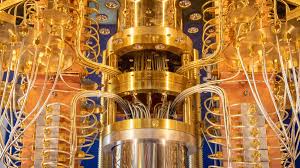
Breaking News
 Interview 1991 - The Origins of the Philosophy of Liberty with Ken Schoolland
Interview 1991 - The Origins of the Philosophy of Liberty with Ken Schoolland
 Silversqueeze: How We Got Here, Where We're Going
Silversqueeze: How We Got Here, Where We're Going
 I asked Grok for Its Opinion on "Grok vs ChatGPT, Which Is Better?"
I asked Grok for Its Opinion on "Grok vs ChatGPT, Which Is Better?"
 You'll own NOTHING and be happy?
You'll own NOTHING and be happy?
Top Tech News
 Build a Greenhouse HEATER that Lasts 10-15 DAYS!
Build a Greenhouse HEATER that Lasts 10-15 DAYS!
 Look at the genius idea he came up with using this tank that nobody wanted
Look at the genius idea he came up with using this tank that nobody wanted
 Latest Comet 3I Atlas Anomolies Like the Impossible 600,000 Mile Long Sunward Tail
Latest Comet 3I Atlas Anomolies Like the Impossible 600,000 Mile Long Sunward Tail
 Tesla Just Opened Its Biggest Supercharger Station Ever--And It's Powered By Solar And Batteries
Tesla Just Opened Its Biggest Supercharger Station Ever--And It's Powered By Solar And Batteries
 Your body already knows how to regrow limbs. We just haven't figured out how to turn it on yet.
Your body already knows how to regrow limbs. We just haven't figured out how to turn it on yet.
 We've wiretapped the gut-brain hotline to decode signals driving disease
We've wiretapped the gut-brain hotline to decode signals driving disease
 3D-printable concrete alternative hardens in three days, not four weeks
3D-printable concrete alternative hardens in three days, not four weeks
 Could satellite-beaming planes and airships make SpaceX's Starlink obsolete?
Could satellite-beaming planes and airships make SpaceX's Starlink obsolete?
IBM's new 53-qubit quantum computer is its biggest yet

IBM's 14th quantum computer is its most powerful so far, a model with 53 of the qubits that form the fundamental data-processing element at the heart of the system. The system, available online to quantum computing customers in October, is a big step up from the last IBM Q machine with 20 qubits and should help advance the marriage of classical computers with the crazy realm of quantum physics.
Quantum computing remains a highly experimental field, limited by the difficult physics of the ultra-small and by the need to keep the machines refrigerated to within a hair's breadth of absolute zero to keep outside disturbances from ruining any calculations.
But if engineers and scientists can continue the progress, quantum computers could help solve computing problems that are, in practice, impossible on today's classical computers. That includes things like simulating the complexities of real-world molecules used in medical drugs and materials science, optimizing financial investment performance, and delivering packages with a minimum of time and fuel.
Quantum computers rely on qubits to store and process data. Unlike regular computer bits, which can store either a zero or a one, qubits can store a combination of both through a concept called superposition. Another factor is entanglement, which links the states of two qubits even if they're separated.
"The new quantum system is important because it offers a larger lattice and gives users the ability to run even more complex entanglement and connectivity experiments," said Dario Gil, director of IBM Research.
IBM is competing with companies like Google, Microsoft, Honeywell, Rigetti Computing, IonQ, Intel and NTT in the race to make useful quantum computers. Another company, D-Wave, uses a different approach called annealing that's already got some customers, while AT&T and others are pursuing the even more distant realm of quantum networking.

 First totally synthetic human brain model has been realized
First totally synthetic human brain model has been realized Mach-23 potato gun to shoot satellites into space
Mach-23 potato gun to shoot satellites into space

